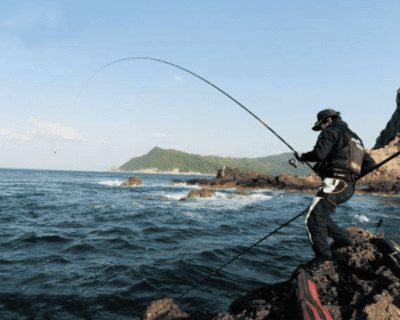As the world becomes increasingly aware of environmental issues, the fishing industry is not left untouched. Eco-friendly fishing bait packaging is gaining traction, not just for its benefits to the environment but also for its positive impact on the fishing community. This article delves into why eco-friendly packaging matters and how it can benefit both anglers and the planet.

1. Reducing Plastic Pollution
Traditional fishing bait packaging often relies heavily on plastics, which contribute significantly to ocean pollution. Plastic waste not only harms marine life but also disrupts ecosystems. Eco-friendly packaging options, such as biodegradable materials or recycled content, can drastically reduce the amount of plastic that ends up in our waters. By choosing sustainable materials, anglers and manufacturers can take a proactive stance against plastic pollution.
2. Preserving Marine Ecosystems
Sustainable fishing practices rely on maintaining healthy marine ecosystems. Eco-friendly packaging minimizes the environmental footprint associated with fishing bait production and distribution. By opting for materials that decompose naturally or can be recycled, the fishing industry can help protect aquatic habitats, ensuring that future generations can enjoy fishing.
3. Meeting Consumer Demand
Today’s consumers are increasingly eco-conscious. Many anglers prefer brands that prioritize sustainability, viewing eco-friendly packaging as a reflection of a company’s commitment to environmental responsibility. By adopting sustainable packaging, fishing brands can attract environmentally-minded customers, fostering brand loyalty and enhancing their market presence.
4. Compliance with Regulations
Governments worldwide are implementing stricter regulations concerning plastic usage and waste management. By transitioning to eco-friendly fishing bait packaging, companies can stay ahead of regulatory changes, avoiding potential fines and adapting more easily to new laws. This proactive approach not only protects the business but also aligns with global efforts to reduce plastic waste.
5. Cost-Effective Solutions
While there may be a perception that eco-friendly packaging is more expensive, advancements in sustainable materials are making them increasingly cost-effective. In the long run, using biodegradable or recyclable materials can lead to lower disposal costs and reduced waste management fees. Companies that invest in sustainable solutions may find that these initial costs are offset by long-term savings.
6. Enhancing Brand Image
Brands that commit to sustainability often enjoy enhanced public perception. Eco-friendly fishing bait packaging can serve as a marketing tool, showcasing a company’s dedication to environmental stewardship. By communicating these efforts through labeling and branding, companies can differentiate themselves from competitors and appeal to a broader audience.
7. Innovation in Packaging Design
The move towards eco-friendly packaging has spurred innovation within the fishing industry. Companies are exploring new materials, such as plant-based plastics and compostable films, to create packaging that is both functional and environmentally responsible. This creativity not only meets sustainability goals but also enhances the consumer experience.
Conclusion: Making the Shift
The importance of eco-friendly fishing bait packaging cannot be overstated. By reducing plastic waste, preserving marine ecosystems, and meeting consumer demands, sustainable packaging represents a win-win for both the environment and the fishing industry. As anglers become more aware of their choices, embracing eco-friendly solutions will become increasingly essential.
For brands looking to lead in this space, it’s time to invest in sustainable packaging options that reflect a commitment to the planet. At Colorful Packaging, we offer innovative, eco-friendly packaging solutions designed to meet the needs of the fishing industry and beyond. The shift toward sustainable fishing bait packaging is not just a trend; it’s a necessary step toward a sustainable future for fishing and our oceans.


